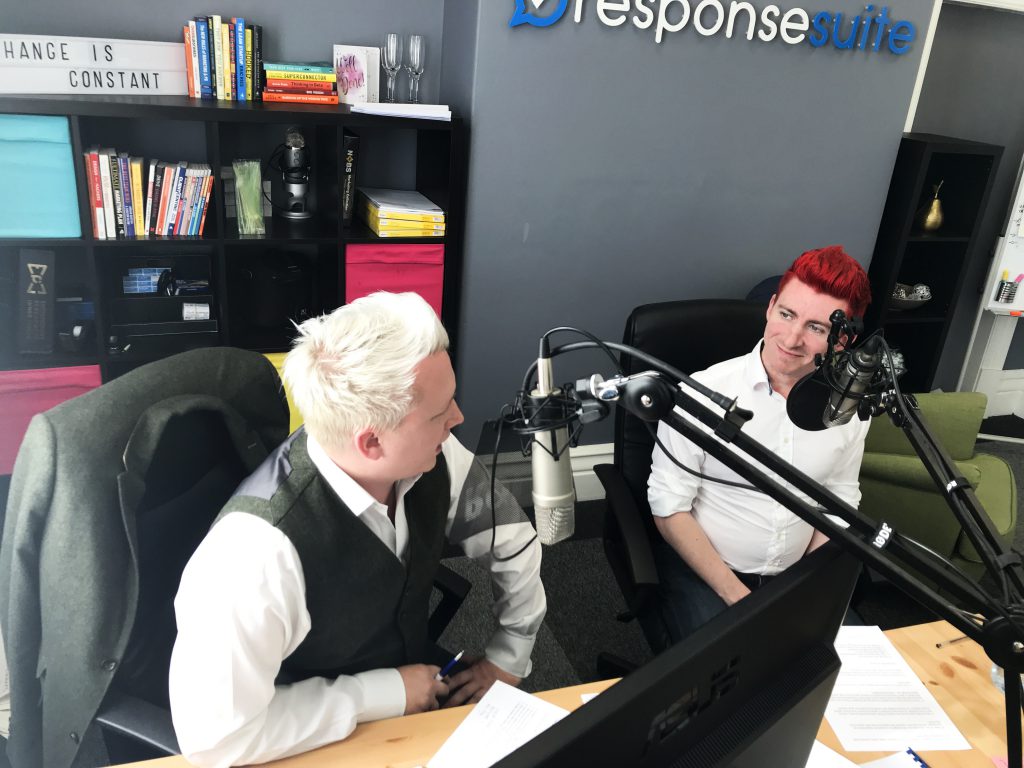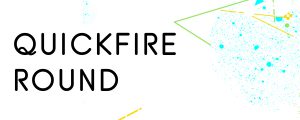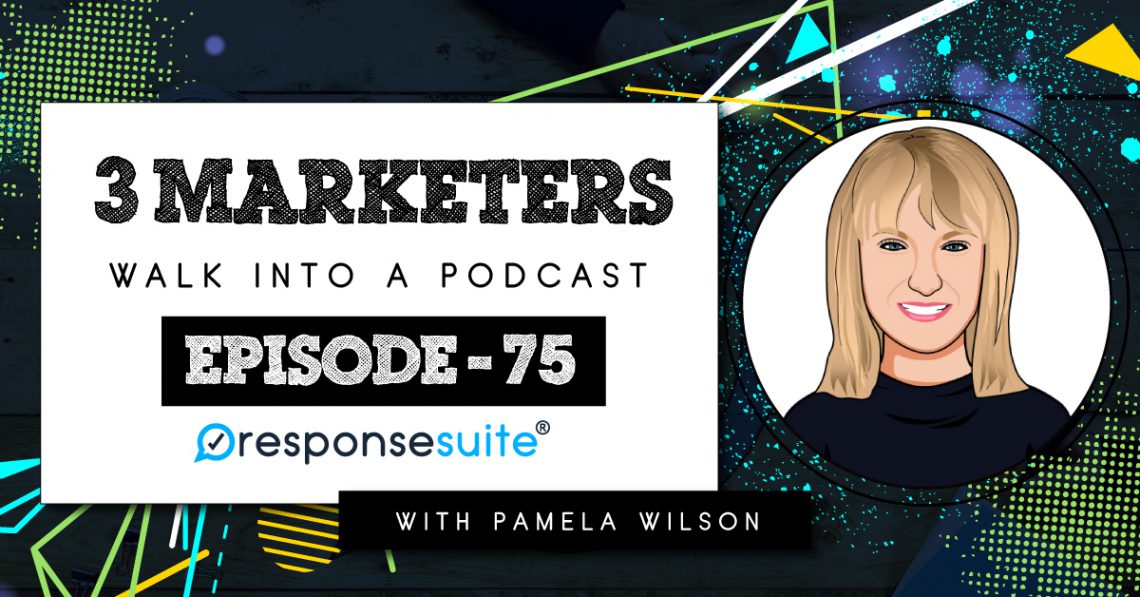Pamela Wilson is here to chat about her approach to content marketing, starting with the lifecycle approach and all three stages that go to this structure.
Find out how to become a great content creator, no matter what stage you are in with your website or blog, or podcast, or youtube video…
Subscribe now on your favourite podcast player:

Tell us about your concept of this lifecycle approach to content. Can you tell us what this is, how does it work?
- I developed this approach because I realized that content marketing needed to change the way they think about their work depending on how their website is.
- If your website is very young and if it's maybe in the first year, you need to publish content because you need google and search engines to find you and recognize what your website is about. It's also so you can gain skills as a content creator.
- It’s all about establishing that foundation in the first year. I recommend that people just publish something every week if they can pull it off and start developing their content marketing.
Are you saying we are actually allowed to go out there and just start throwing stuff on the internet without sitting in a darkened room and writing the strategy?
- I think that your strategy is something that you can develop as you work. I’m all about working in public and learning as you go along. I don’t think you should be quite as random as just throwing things out on the internet.
- I ask people to think through what is your big topic and what categories do you want to touch as your writing.
- Those things are important, but there is a certain amount of learning as you go that you can’t make happen until you publish and are actually putting things out there. You shouldn't overthink things, you should really put it out there and see what resonates with people.
For you personally, what’s the argument for content marketing that everyone seems to be talking about?
- I am really writing for people that are not professional marketers. So if you take that in context it’s a little more understandable. If I was to ask my readers to create a marketing strategy before they write a single word of content, they would never write a single word or content.
- I try to walk them through this very simple process of getting to know your ideal customer, get yourself inside their heads, try to understand what they need and want, and then just start writing.
- Don’t think it and feel like you have to have this complex plan that you develop because the people I write for don’t have the skills to develop that kind of plan.
- I recommend this system where the plan kind of develops as their writing and as they are seeing what resonates and as they are reading comments and answering questions.
Is twelve months a thing or are you looking for some sort of progress? What is the benchmark for when it’s now time to move on to the next phase?
- I think the benchmark is when people feel confident as content creators. I want them to feel like they understand their audience, they have seen a pattern as far as what is getting feedback from people, what’s resonating with the audience they want, and what is getting shared more.
- They’re paying attention to the google analytics to see what people are visiting on their website and then social shares, which do give us a little bit of information about what is resonating with our audience.
- I want people to feel like at the end of the year is that they’ve got this and understand what people want, it’s getting traction, and building an audience.
- One of the things I like about the year point is even if you take a couple weeks vacation at the end of the year, you have 50 published pieces of content on your website and that is amazing. And you’ve also gone through the application process 50 times, so it’s 50 chances to practice content marketing skills.
Is it just written content or is their other media that fits into this too?
- In the book I talk about content as being a lot of things, it can be written content, but it could also be a podcast, a blog, a youtube series. The medium doesn’t matter as much.
- I teach about creating a content outline that you can follow, even if your final piece ends up being an audio or video, but typically you have some kind of general structure that you’re following. So I do recommend starting with some type of writing, but the final product doesn’t matter, it’s more about consistently building a connection with your audience and understanding what they want.
Do you have a certain number of phases that are in this lifecycle? What does the rest of the future look like?
- There are three big phases. The first year, and then in year two through five I recommend that people start to get some extra challenges because you have the basics down and now some hurdles are maybe thrown in your way, to continue to build your skillset. That’s what I recommend people challenge themselves with once they have that content foundation established on the website.
- In year two through five, you should look for ways to add multimedia to your content. Maybe you can make it more in-depth and have more research behind it, maybe it’s a little bit longer than it was before.
- I also recommend that people look for ways to expand their message onto other platforms. So if its a podcast then you look for ways to put it on to youtube, if it is a youtube blog then maybe start publishing it regularly on LinkedIn, if that’s where your audience is. It’s where you push exerts out onto Instagram or something like that. You look for a way to take your basic content now that you have that skillset and you know you can produce content, now you look for ways you can do a little bit more.
- If you know you need to dial back in this stage, publish content maybe every other week, you can do that because you already established what your website is about, you have a full year worth of content that you’ve created. So if you need two weeks to produce a really rich amazing piece of content you can do that.
How do you keep yourself motivated when your viewership is in the early stages? How do you keep yourself going for those twelve months?
- That is one of the reasons I really emphasize growing your skillset as a content creator because you may not have a whole lot to show in terms of how many people are listening, reading, or subscribing, but you should be able to notice as the months go on, the whole process becomes easier.
- Even though you may not have a huge number of listeners to look at you can say I have made progress as a creator, I'm better than I was when I started out, it feels more natural.
One of the things you talk about as well in the book is this concept of very important content, and there are key ingredients that go into this that you call very important, can you give us it?
- Very important content is what I want people to start focusing on in that middle lifecycle section, in that middle stage.
- Then there is the third stage, year six and beyond, at which point you start becoming a library, you have this massive amount of content and you need to be making sure you surface it and get it in front of people.
- Very important content is what you want to aim for in these two stages because very important content is more in-depth, it tends to have multimedia, resonates, and maybe you’ve gone back and updates it, added things to it so it will get in front of a fresh audience fresh audience you are interlinking, that you're you are linking back to previous content, you're also making sure that older content that is ranking is being linked forward to your newer content. So that helps to make it very important content.
- On any website, even if you’re not a huge website blogger, there are superstar pieces of content and then there is everyday regular content, and that's fine. You want to make sure that you recognize that you don't have to publish a home run piece of content every single time, but you do want to be aware of what people a free responding to, what people are linking to, what they are visiting, what they are talking about, and go back and make these very important pieces.
- Add multimedia, continue to share them on social media, and there may be only ten of them, that's okay, you just want to make sure you spotlight on these pieces of content.
Is it a good idea to plan content twelve months in advance, what’s the plan look like?
- I do think some people get caught up in planning and don't actually create content so I usually plan about three months out because my content marketing-and were not just talking about content creation, we are talking about content marketing and that marketing piece is really important because I'm using content to promote my online business, and manage it.
- I need to be aware of the things I'm planning on promoting when I'm looking at my content plan. I take my calendar and say I know I'm going to promote this the second week of the month and then this on the last week of the month. Then I just kind of plugin promotions, things that I know I want my audience to be thinking about.
How do you adjust the content to be appropriate to lead into that promotion?
- There is an opportunity that you can make your content contains some of the elements of a good sales page or a sales letter where you are talking about the pain points, you're agitating the problem a little bit so people start to think that that is an issue for me as well.
- You're letting people know there is a way that you can fix this problem and get them thinking about it and build awareness that way.
- There is a way to use content like sending your content out, your blog posts out to a list of people so it feels like delivering a piece of valuable content but obviously, that content gets them thinking about something, a topic.
Where do we see where the sales fit into this? People might be worried now that they have to wait twelve months before they start selling stuff?
- I don’t normally use content to directly sell. I use content to get people on my email list, I use it to agitate a problem, to invite them to a webinar where I will sell something to them.
- I use it to move them into a funnel so if I have a product that they want then I sell. I normally just use my content to deliver information, engage, build trust, and not necessarily sell.
How many pieces of content would you put ahead in front of a promotion?
- It depends. Typically more expensive products or products that require more of a commitment in terms of money or time need a longer warm-up period.
- I'm a believer, when you are asking people for a big commitment it takes time. I think it is also partly because there is just so much content out there, so you may feel like you are talking about it and talking about it but the chances are people have only seen a small percentage of what you’re actually putting out there.
- Don't be afraid to be a little bit repetitive while you are building up interest in something if it is big.


A book that you would recommend…
The 12 Week Year by Brian P. Moran
What is your top success habit?
I spend an hour every weekend looking ahead to the next week and map out what is going to happen every day of the week.
What are your favourite apps right now?
5 Minute Journal
Here’s the big one… who do you like more, Rob or Kennedy?
Kennedy.
Finally, where can folks go to find out more about you?
You can find out more at bigbrandsystem.com and get some free goodies at bigbrandsystem.com/goodies




Leave a Comment